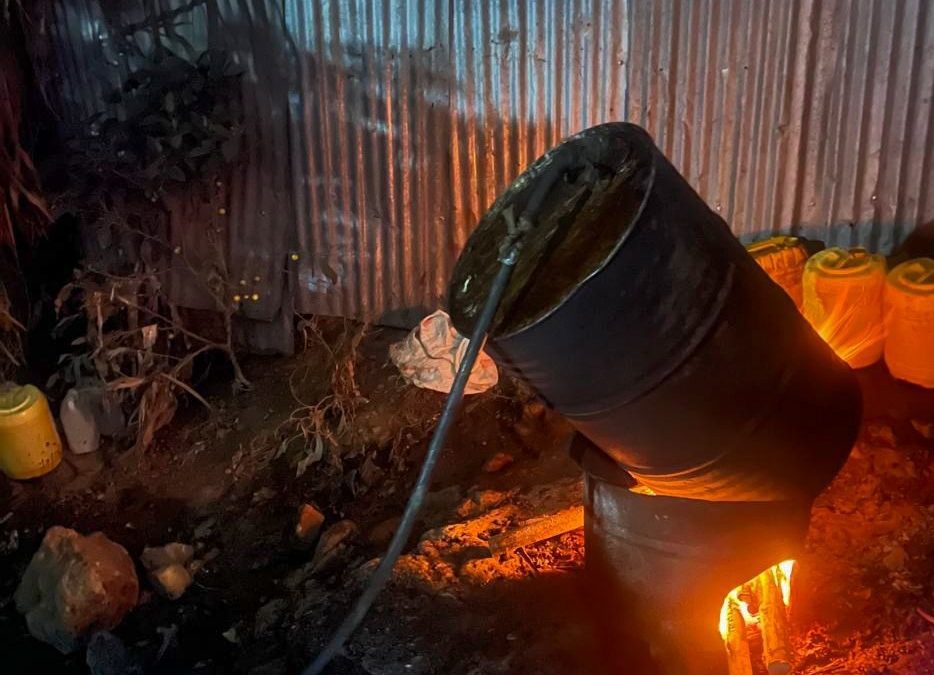Authorities in Nairobi’s Kayole Sub-County have destroyed more than 100 litres of kangara, an illicit homemade brew, following a multi-agency crackdown on makeshift distilleries along the Nairobi River near Dandora Bridge in the Mwengenye area. The enforcement action, carried out on Thursday, July 17, 2025, was led by officers from Obama Police Station working in concert with other government agencies focused on curbing the production and distribution of alcohol and related substances. According to an official statement issued on Friday, July 18, 2025, the raid targeted several hidden brewing sites where crude equipment and raw materials were being used to ferment and distil the unregulated drink. During the sweep, security teams seized and destroyed more than ten 20-litre plastic jerricans used in the production process, in addition to the liquid itself.
No suspects were immediately taken into custody, but investigators are pursuing leads to identify those operating the illicit dens and any wider supply networks that feed the informal alcohol trade in Nairobi’s eastern estates. Authorities stressed that the action in Kayole forms part of a sustained nationwide effort to dismantle the shadow market in illicit alcohol and narcotics, an effort that has recently seen significant seizures in multiple counties. In one incident last month, more than 12,000 litres of kangara and chang’aa were confiscated in Kisii County, while separate operations in Kibera, Tharaka Nithi, and Narok resulted in recoveries and arrests linked to illegal brewing and drug trafficking.
Officials reiterated that unregulated brews pose severe health risks, including methanol poisoning, long-term organ damage, and heightened vulnerability to other forms of crime and social harm. They urged the public to stay vigilant and to report suspicious activity through local administration channels, community policing structures, or anonymous hotlines so that enforcement teams can respond quickly before contaminated alcohol reaches consumers. Kenya’s stepped-up approach reflects a broader public health and safety priority: protecting communities from preventable deaths and injuries tied to illicit intoxicants while encouraging compliant producers to adopt safer, regulated alternatives. Going forward, local commanders say periodic riverbank patrols, surprise inspections, and data-sharing between health, revenue, and security agencies will remain to choking off supply chains that shift from one informal settlement to the next when pressure mounts. The National Police Service has underscored a zero-tolerance posture: operations will intensify wherever intelligence indicates renewed brewing, and recovered evidence will be used to build prosecutable cases against financiers, transporters, and repeat offenders.

